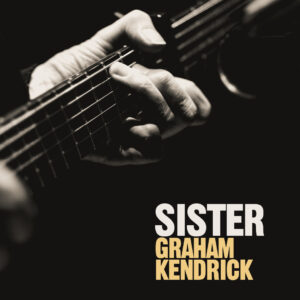Subscribe for updates

Free Download
Send Free Download Link to:
The worship journey is about being sent out and I think it’s very important that we build into this journey the commissioning to go and do, to go and live. This is the way that we step into the story. If you were in church on a Sunday morning and I stood up to begin the service and said ‘Now let’s all say together these words’ and as the words flashed up on the screen we said together ‘My father was a wandering Aramean and he went down to Egypt with a few people and lived there and became a great nation’. You might give me a double-take but actually that is a core part of the Jewish liturgy. When they gather to worship they actually start by telling a story that goes way back to Abraham. There’s a powerful logic in this because if it wasn’t for what happened between God and Abraham there wouldn’t be a story, there wouldn’t be a gathering today. Similarly, all of Christian worship is based upon the story of God’s intervention into the human condition. It is as we retell this story and discover how we fit into it, that worship actually becomes possible.
Out of this poem comes things about God such as ‘The Lord is my strength and my song’. Of course the great thing about hearing stories is that we start to imagine ‘well if that happened then to them, what might happen now to me with that kind of a God?’
I think most writers of praise and worship songs would agree that the best combination of a song is where you say something about God, the Gospel, the Truth, and then you engage with that, you feel something about that, you make it yours and you respond to it. I think of that in terms of two words – Revelation and Response. We are telling the story and we are then responding to that story, mixing it with faith and saying ‘OK, that is my story too because I’m encountering God as well in the present time.’
New Testament worship took a similar form and you’ll find verses which are like compressions of the story of Jesus into a few well chosen phrases. For example in 1 Corinthians 15: 3-4 ‘Christ died for our sins according to the Scriptures, that he was buried, that he was raised on the third day according to the Scriptures’. So you’ve got this amazing journey of God into our condition. I think we need to remember that the story of salvation actually begins with God, it doesn’t begin with us. In a culture which puts the emphasis on how we feel about things the challenge I think in Christian worship is to mix back into that songs that reference Bible stories and Bible characters, we come, we refresh, we renew, we remember all God has done for us.
It’s a very sensory journey through the bread and the wine, the tastes and the smells and in the actions of corporately participating, we’re taken on a journey of remembrance of those key events, we remember something which happened a couple of thousand years ago but in the remembering of it we, by faith, make it ours once again. This is a core element of Christian worship and how it works.
It’s a powerful thing because it places us in this amazing narrative of cosmic proportions, there’s nothing bigger in the universe than this story of God and His interaction with the human race on this little planet and we can be part of that and discover where we fit into His story.
One of the scriptures commonly used as a template for the journey of Christian worship is in Isaiah 6 where in his vision first of all Isaiah sees God and he’s utterly struck by his unworthiness and feels he’s going to die. But then comes the angel who touches his lips with coal from the fire, from the altar. It’s a symbol that there’s forgiveness, there has been a sacrifice so you can be forgiven because Isaiah says ‘I’m an unclean man, I’m a man of unclean lips, and I live among a people of unclean lips, woe is me, I’m finished’ [paraphrased]. Then having received his forgiveness, something else happens, Isaiah hears God saying ‘Whom shall we send, who will go for us – there’s a job to be done’ and he answers, ‘Send me, send me, I’ll go’. So the worship journey is not just about us encountering God and how we feel about that, it’s also about being sent out and I think this is such an important thing that we build into this journey the sending out, the commissioning, to go and do, to go and live, and that of course is the way we step into the story in our experience, we come, we refresh, we renew, we remember all God has done for us. We drink in, we breathe in the goodness of that and then we’re sent out to serve and to get our feet on the streets and in our neighbourhoods and in our homes and to seek to be the followers of Christ that we’re called to be.

Send Free Download Link to: